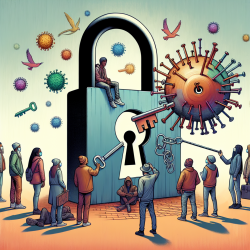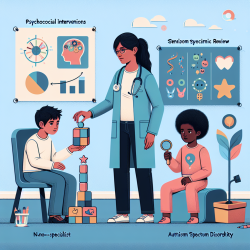Understanding the Immunization Challenges Faced by Homeless Youth
Homeless youth represent a vulnerable segment of the population that often falls through the cracks of public health initiatives. The study "Challenges to immunization: the experiences of homeless youth" sheds light on the unique obstacles these young individuals face in accessing vaccinations. As practitioners, it is crucial to understand these challenges and leverage this knowledge to improve immunization strategies.
Key Insights from the Research
The research conducted by Doroshenko et al. (2012) reveals several critical themes:
- Knowledge Gaps: Homeless youth generally have limited awareness of certain vaccine-preventable diseases, such as meningitis, despite being more familiar with sexually transmitted infections and influenza.
- Perceived Risks: The youth are aware of their heightened risk for infectious diseases due to poor living conditions and behaviors associated with homelessness.
- Attitudes Toward Vaccination: While willing to comply with health professional advice, these youth express doubts about vaccine efficacy and are often deterred by cost and access barriers.
Strategies for Improvement
To enhance immunization efforts among homeless youth, consider implementing the following strategies:
- Collaborate with Non-Profit Organizations: Partnering with organizations like Phoenix House can provide a trusted platform for delivering vaccines and educational resources.
- Utilize Appropriate Media: Effective outreach using social media and other platforms frequented by homeless youth can raise awareness about vaccination opportunities.
- Address Cost Barriers: Ensuring that vaccines are free or affordable is crucial. Clear communication about which vaccines are publicly funded can alleviate misconceptions.
Encouraging Further Research
While the study provides valuable insights, there is a need for continued research to explore the diverse experiences of homeless youth across different regions and seasons. Understanding individual characteristics and their impact on health behaviors can further refine public health strategies.
By actively targeting homeless youth and tailoring interventions to their specific needs, practitioners can play a pivotal role in reducing health disparities and improving overall community health.
To read the original research paper, please follow this link: Challenges to immunization: the experiences of homeless youth.










